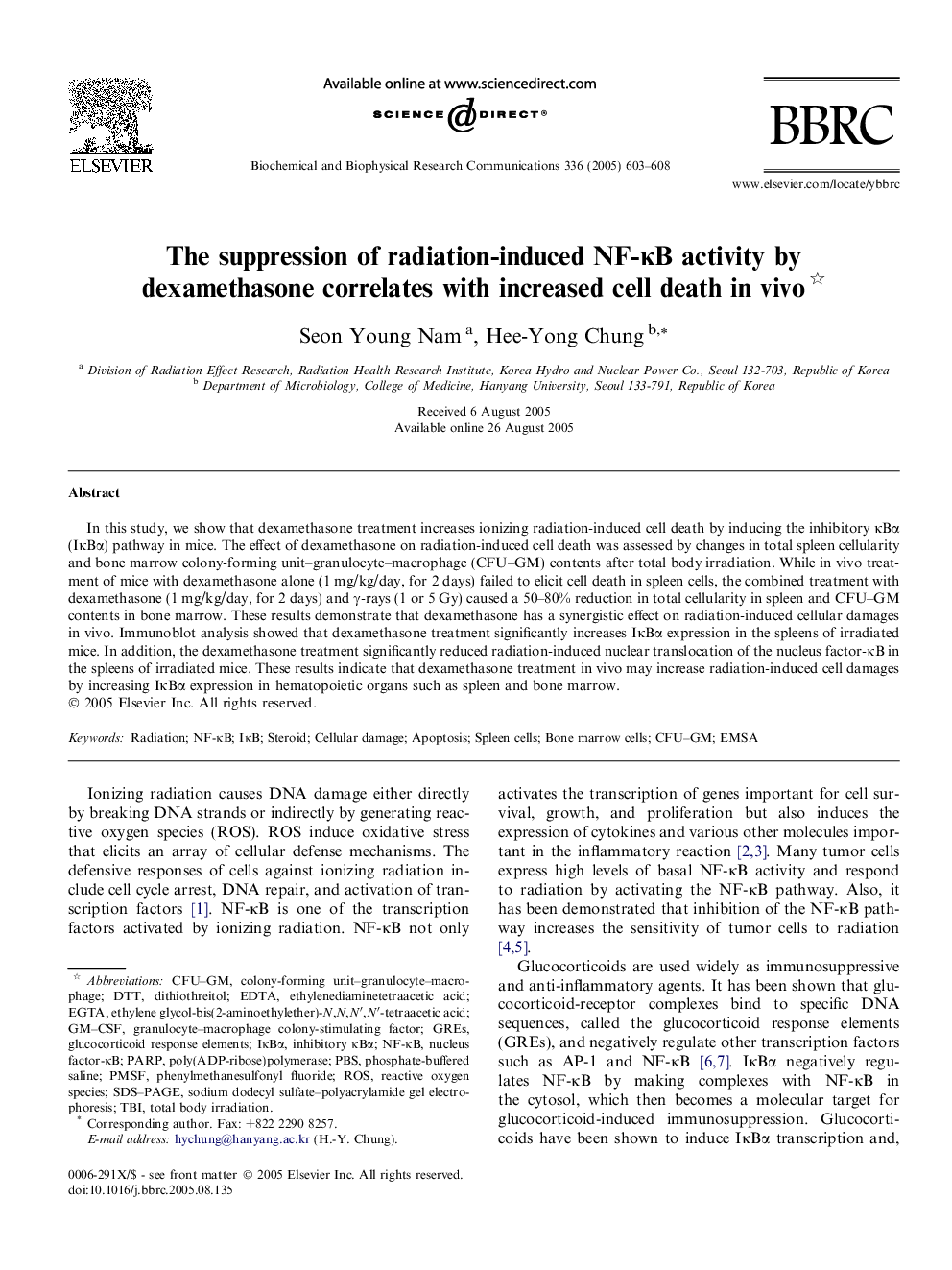| کد مقاله | کد نشریه | سال انتشار | مقاله انگلیسی | نسخه تمام متن |
|---|---|---|---|---|
| 10769597 | 1050823 | 2005 | 6 صفحه PDF | دانلود رایگان |
عنوان انگلیسی مقاله ISI
The suppression of radiation-induced NF-κB activity by dexamethasone correlates with increased cell death in vivo
دانلود مقاله + سفارش ترجمه
دانلود مقاله ISI انگلیسی
رایگان برای ایرانیان
کلمات کلیدی
موضوعات مرتبط
علوم زیستی و بیوفناوری
بیوشیمی، ژنتیک و زیست شناسی مولکولی
زیست شیمی
پیش نمایش صفحه اول مقاله

چکیده انگلیسی
In this study, we show that dexamethasone treatment increases ionizing radiation-induced cell death by inducing the inhibitory κBα (IκBα) pathway in mice. The effect of dexamethasone on radiation-induced cell death was assessed by changes in total spleen cellularity and bone marrow colony-forming unit-granulocyte-macrophage (CFU-GM) contents after total body irradiation. While in vivo treatment of mice with dexamethasone alone (1 mg/kg/day, for 2 days) failed to elicit cell death in spleen cells, the combined treatment with dexamethasone (1 mg/kg/day, for 2 days) and γ-rays (1 or 5 Gy) caused a 50-80% reduction in total cellularity in spleen and CFU-GM contents in bone marrow. These results demonstrate that dexamethasone has a synergistic effect on radiation-induced cellular damages in vivo. Immunoblot analysis showed that dexamethasone treatment significantly increases IκBα expression in the spleens of irradiated mice. In addition, the dexamethasone treatment significantly reduced radiation-induced nuclear translocation of the nucleus factor-κB in the spleens of irradiated mice. These results indicate that dexamethasone treatment in vivo may increase radiation-induced cell damages by increasing IκBα expression in hematopoietic organs such as spleen and bone marrow.
ناشر
Database: Elsevier - ScienceDirect (ساینس دایرکت)
Journal: Biochemical and Biophysical Research Communications - Volume 336, Issue 2, 21 October 2005, Pages 603-608
Journal: Biochemical and Biophysical Research Communications - Volume 336, Issue 2, 21 October 2005, Pages 603-608
نویسندگان
Seon Young Nam, Hee-Yong Chung,